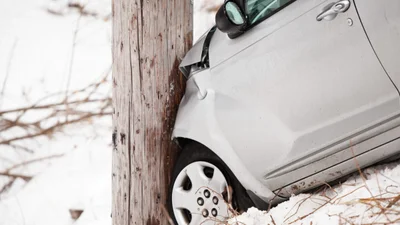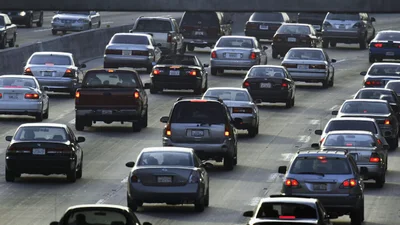Best car insurance companies of July 2024
Updated 9:30 a.m. UTC July 1, 2024
Editorial Note: Blueprint may earn a commission from affiliate partner links featured here on our site. This commission does not influence our editors' opinions or evaluations. Please view our full advertiser disclosure policy.
The best car insurance company of 2024 is Nationwide. It has a wide range of coverages, some of the lowest rates and fewer complaints to state insurance departments, compared to many other insurers in our analysis.
Travelers and USAA also receive 5 stars in our analysis of the best car insurance companies, Erie, Geico and Progressive earn between 4 and 4.5 stars and are also good car insurance companies to consider.
The best car insurance companies of 2024
| COMPANY | WHO IT'S BEST FOR | AVERAGE MONTHLY COST FOR A GOOD DRIVER |
|---|---|---|
Most drivers
| $120
| |
Military members and their families
| $114
| |
New car owners
| $127
| |
New drivers
| $137
| |
Drivers with bad credit
| $133
| |
Drivers with a DUI
| $152
|
Why trust our car insurance experts
Our team of car insurance experts brings to the table decades of experience in the auto insurance industry, both as editors and consumers. We approach our car insurance analysis the way we would for ourselves or our family members, focusing on the factors that matter the most: rates, coverage and features available, customer complaints and the collision repair process.
We use a data-driven methodology to evaluate hundreds of insurance products, analyze thousands of data points and rate each insurer to help you find the best car insurance product for your situation. Advertisers never influence our editorial content.
You can read more about our methodology below.
- 260 companies analyzed.
- 347 rates reviewed.
- 5 levels of fact-checking.
Top-rated car insurance companies of 2024
What car insurance companies do we recommend?
Based on our analysis of major insurers across the country, Nationwide is the best car insurance company for most drivers. It has competitive rates and a low level of customer complaints to state insurance departments. It also offers an array of coverages that can be beneficial to drivers at various points in life.
Travelers and USAA also receive a 5-star rating and earn top spots in our cheapest car insurance, best car insurance for teens and best car insurance for seniors ratings. However, USAA auto insurance is only available to members of the military, veterans and their eligible family members.
Erie, Geico or Progressive may also be a good fit, depending on your driver profile and policy preferences.
For instance, Erie offers low rates for 16-year-old drivers on a parent policy, and it also has a notably strong collision repair process. Geico and Progressive may be best for some high-risk drivers: Geico has low rates for drivers with poor credit and Progressive has the cheapest rates for drivers with a DUI on their record.
The best car insurance for you depends on your budget, specific coverage needs and location, the make and model of your vehicle and your driving history.
Comparing multiple car insurance quotes will help you determine the average cost of coverage based on your unique driver profile. Then you can choose the insurer that offers the coverages and features you want at the lowest rate.
How much does car insurance cost?
The average annual car insurance rate for good drivers is $2,026, or about $169 per month according to our analysis. Other drivers, such as those with a moving violation on their record or teens and seniors, may pay more.
Full coverage car insurance rates are based on liability coverage of 100/300/100 ($100,000 in bodily injury liability per person, $300,000 per accident and $100,000 in property damage liability), uninsured motorist coverage and collision and comprehensive insurance with a $500 deductible. The cost of coverage by state reflects the average rates for the insurers analyzed in our best car insurance companies rating.
Average monthly cost of car insurance
| DRIVER TYPE | NATIONAL AVERAGE | CHEAPEST CAR INSURANCE |
|---|---|---|
Good driver
| $169
| USAA: $114
|
After an accident with injury
| $251
| USAA: $163
|
After an accident with property damage
| $250
| USAA: $168
|
$280
| Progressive: $192
| |
After a speeding ticket
| $211
| USAA: $138
|
Poor credit
| $321
| Nationwide: $171
|
Parent adding a teen driver
| $364
| Nationwide: $235
|
Young driver (18 to 25)
| $309
| USAA: $197
|
$179
| Nationwide: $117
| |
After a gap in coverage
| $197
| USAA: $130
|
USAA car insurance is only available to members of the military, veterans and their families.
Factors that impact the cost of car insurance
To get the best auto insurance rates, it’s helpful to understand what factors insurers use to determine your premium. Here are several variables that will determine how much you pay for auto insurance.
- Auto insurance deductible amount you choose, when applicable.
- Coverage limits you choose.
- Types of auto insurance you include in your policy, including optional coverages.
- Your age.
- Your car insurance claims history.
- Your car insurance history.
- Your credit-based insurance score (except in California, Hawaii, Massachusetts and Michigan).
- Your gender (except in California, Hawaii, Massachusetts, Michigan, North Carolina and Pennsylvania).
- Your location.
- Your vehicle.
Average annual car insurance costs for popular vehicles
The type of vehicle you drive directly impacts how much you’ll pay for car insurance. Here are the average annual rates for popular vehicles in the United States.
| MAKE AND MODEL | AVERAGE ANNUAL RATE | AVERAGE MONTHLY RATE |
|---|---|---|
Chevrolet Equinox LS
| $2,193
| $183
|
Chevrolet Malibu LS
| $2,592
| $216
|
Chevrolet Silverado 3500HD WT
| $2,356
| $196
|
Ford Explorer
| $2,307
| $192
|
Ford F-150 XL
| $2,142
| $179
|
GMC Sierra 1500 Pro
| $2,268
| $189
|
Honda Accord LX
| $2,433
| $203
|
Honda Civic LX
| $2,360
| $197
|
Honda CR-V LX
| $2,038
| $170
|
Hyundai Elantra SE
| $2,454
| $205
|
Hyundai Tucson SE
| $2,065
| $172
|
Jeep Grand Cherokee
| $2,362
| $197
|
Jeep Wrangler Unlimited Freedom
| $2,011
| $168
|
Mazda CX-5 2.5 S
| $2,058
| $171
|
Nissan Rogue S
| $2,281
| $190
|
Ram 1500 Tradesman
| $2,364
| $197
|
Subaru Crosstrek
| $1,955
| $163
|
Subaru Outback
| $1,943
| $162
|
Toyota Camry LE
| $2,417
| $201
|
Toyota, Corolla Cross Hybrid S
| $2,368
| $197
|
Toyota, Corolla Cross L
| $2,123
| $177
|
Toyota, Highlander L
| $2,228
| $186
|
Toyota, RAV4 LE
| $2,148
| $179
|
Toyota, Tacoma
| $2,162
| $180
|
Source: Quadrant Information Services. Rates are for a 40-year-old driver with a clean driving record shopping for full coverage with a $500 deductible.
5 ways to find the best car insurance company for you
If you’re looking for the best auto insurance company for you, these steps can help:
- Determine your basic insurance needs by checking state coverage requirements. If you finance or lease your vehicle, also check the lender or lessor agreement, as it likely requires comprehensive and collision coverage and potentially gap insurance.
- Customize your policy with any additional coverages or features you may need or want, such as new car replacement coverage, rideshare coverage or roadside assistance. Also consider any situational needs, such as SR-22 filing after a DUI.
- Evaluate benefits and discounts offered by each insurer, such as access to online or in-app policy management, home and auto bundling discounts, or other circumstantial discounts, like a good student discount.
- Compare quotes from at least three insurance companies, ensuring you’re comparing auto insurance quotes for the same type and amount of coverage.
- Consider insurer reviews. The cheapest coverage isn’t always the best. Read expert car insurance reviews online and get feedback from friends, family or coworkers about their car insurance to help you determine the best insurer for your needs.
Save on car insurance costs with these tips
We know car insurance is a necessary part of your budget. And while you can’t get rid of that expense altogether, there are ways for you to save. Here’s how our experts cut their car insurance costs.
- Ask about discounts. Insurers offer car insurance discounts like good driver discounts and bundling home and auto insurance.
- Drive safely. Drivers with a good record and no traffic violations tend to see lower rates.
- Keep your credit score up. In some states, insurers factor in your credit-based insurance score to determine your premium. Your credit-based insurance score factors in data from your most recent credit report, so the better your credit score, the cheaper your car insurance may be.
- Choose a higher deductible. Raising your deductible will likely lower rates, but remember: Your claims payouts will be smaller.
- Shop around. Get and compare car insurance quotes. Do this each year to ensure you’re getting the best rates for your needs.
- Consider the cost to insure a vehicle before purchasing. If you’re in the market for a new vehicle, get a few quotes for the vehicle(s) you’re considering. The make and model of the vehicle you drive will directly impact your rate.
- Consider usage-based car insurance (UBI), especially if you drive infrequently and have strong, safe driving habits. Insurers that offer these programs leverage a device plug-in or app to collect telematics data to determine your rate. This data includes your speed, mileage, hard braking, acceleration and more. However, take note that some insurers will raise rates with evidence of unsafe driving habits.
Jennifer’s expert take:
Even if you’re not shopping for car insurance coverage annually, I recommend getting a few quotes after events that can affect your rates — for better or worse. For instance, getting married, buying (and insuring) a new home or getting a renters insurance policy might lead to multi-vehicle or multi-policy discounts. Speeding tickets, accidents and DUIs can all increase your rates, so shopping around after those violations may help you find more affordable coverage.
However, before you leave your current insurer, make sure you contact them to see if they can offer you a lower rate based on your new circumstances.
Jennifer Lobb, Deputy Editor of Insurance, USA TODAY Blueprint
Find the best car insurance by state
California
Colorado
Florida
Massachusetts
Michigan
New Jersey
New York
Texas
Methodology
Our car insurance experts evaluated the best car insurance providers in the nation by analyzing several key metrics: cost, coverage options and features, consumer complaints and collision repair scores. Each car insurance company was eligible for up to 100 points, plus a potential 10 bonus points.
Cost: 50 points. Analysis of Quadrant Information Services rates for a policy with 100/300/100 in liability coverage, uninsured motorist coverage and comprehensive and collision coverage. We awarded up to 50 points based on insurers’ average rates for:
- Drivers in various age groups.
- Drivers with bad credit.
- Drivers with a clean record.
- Drivers with infractions, such as speeding tickets, an accident or a DUI on their record.
Coverages and features: 20 points. If an insurer offers the following policy options in addition to basic coverages, it received 5 points for each one:
- Accident forgiveness.
- New car replacement.
- Vanishing deductible.
- Usage-based car insurance programs.
Customer complaints: 20 points. We looked at data from the National Association of Insurance Commissioners (NAIC), which shows the volume of car insurance consumer complaints against each company. When a consumer lodges a complaint to their state’s department of insurance — often about an insurance company’s claims process, delays, denials or settlements — these complaints are logged and tracked.
- Collision repair score: 10 points. The CRASH Network releases an annual “Insurer Report Card” that asks repair professionals how well a car insurance provider handles claims, specifically when it comes to payment practices, repair quality and customer service. Car insurance companies can receive a letter grade from A+ to F. Those that scored a C or higher were eligible for points.
- Teen and senior rates. 10 bonus points. This bonus was available for insurers that offer low rates for teen and senior drivers, two demographics that typically have higher car insurance rates.
If you’d like to dig in deeper, head over to our car insurance ratings methodology page.
Best car insurance FAQs
USAA offers the cheapest auto insurance rates for most driver types and age groups. However, USAA is only available for military members and their families. If you don’t qualify for USAA, Nationwide and Travelers also have low average rates for most driver groups.
You can find the best price by comparing car insurance quotes from multiple insurance companies. Other ways to find the best rates include bundling your car insurance with your homeowners insurance or renters insurance and asking about other discounts for which you or other drivers on your policy may be eligible.
Consider looking for the following discounts to save:
- Anti-theft equipment discounts.
- Defensive driving class discounts.
- Good driver discounts.
- Good student discounts for young drivers.
- Loyalty discounts.
- Multi-policy or bundling discounts.
- Multi-vehicle discounts.
- New car discounts.
- Payment-based discounts, such as paid-in-full or automatic payment.
- Safety equipment discounts, such as those for anti-lock brakes and airbags.
Yes, if your car is stolen and you still owe on your car loan, gap insurance covers the difference between your loan balance and the value of your vehicle.
Nearly every state requires you to have a certain amount of bodily injury and property damage liability insurance. Additional coverages may be required depending on what state you live in and if you finance your car.
For example, in Illinois you’re required to carry uninsured motorist coverage in addition to liability coverage. In Kentucky you’re required to add personal injury protection (PIP).
No state requires you to purchase collision or comprehensive coverage, but if you have a loan on your car, your lender may require it.
More fatal crashes happen in summer than any other time of year. Between 2020 and 2021, more than 30% of all fatal crashes happened between June and August.
We found that the percentage of fatal crashes that happen in summertime is higher in colder, northern states and lower in warmer, southern ones. For example, 41% of all fatal crashes in Vermont happen in summertime compared to 23% in Florida.
A car insurance premium is how much you pay your insurer for coverage for a set period of time, often six or 12 months.
Your premium is based on factors such as your age, driving record, credit score (in most states), location and discount eligibility. It can also change over time. For instance, if you’re at fault for an accident or get a speeding ticket, you may see a higher premium when you renew your policy.
A deductible is the amount of money an insurer “deducts” from a claims payout for certain types of claims, namely collision and comprehensive insurance, personal injury protection and uninsured motorist coverage claims.
When you purchase car insurance, you choose your deductible — options typically include $250, $500, $1,000 and $2,000. The higher your deductible, the lower your car insurance rates. Lower deductibles lead to higher insurance rates because the insurer takes on more of the financial risk associated with a claim.
Say for instance a tree falls on your car causing $5,000 worth of damages and you file a comprehensive claim for repairs. If you have a $500 deductible, your insurer will issue you a claim payout of $4,500. If you have a $2,000 deductible, your insurer will issue a $3,000 payment.
According to Mark Friedlander of the Insurance Information Institute (Triple-I), consumers shopping for coverage in 2024 can expect higher prices.
“Car insurance rates are expected to continue to increase in 2024 due to costlier repairs, driven by parts shortages and higher costs of labor, as well as low inventories of vehicles, which generates higher costs of replacing totaled cars,” Friedlander said.
One of the best ways to navigate increasing rates is to get multiple quotes from the best auto insurance providers. Then compare car insurance quotes, coverage features and benefits and car insurance reviews to find the car insurance companies best suited for your needs.
Further reading
- Best car insurance for seniors
- Best cheap car insurance after a DUI
- Best cheap car insurance for teens
- Cheapest car insurance
- Compare car insurance quotes
- How to switch car insurance
- How much car insurance do I need?
Editor’s Note: This article contains updated information from previously published stories:
- Coronavirus auto insurance refunds: Here's what you need to know
- GM to offer OnStar auto insurance, promising lower rates the safer you drive
- Coronavirus relief: Allstate, USAA extend customer refunds for insurance policies through June
- Auto insurance rates climb as number of cars, distractions rise
- Drivers in these states could see the biggest discount on car insurance if they switched
- Car insurers don’t care if you drive well; tips on saving
- Do red car owners pay more for car insurance?
- Survey: Louisiana car insurance costs most, Maine least
- Honda kills the Clarity Electric vehicle as sedan sales continue to struggle
- Cellphone use causes over 1 in 4 car accidents
- If you hate auto insurance, you’ll love driverless cars
- These are the 10 most (and least) reliable cars of 2020, according to Consumer Reports
Blueprint is an independent publisher and comparison service, not an investment advisor. The information provided is for educational purposes only and we encourage you to seek personalized advice from qualified professionals regarding specific financial decisions. Past performance is not indicative of future results.
Blueprint has an advertiser disclosure policy. The opinions, analyses, reviews or recommendations expressed in this article are those of the Blueprint editorial staff alone. Blueprint adheres to strict editorial integrity standards. The information is accurate as of the publish date, but always check the provider’s website for the most current information.























